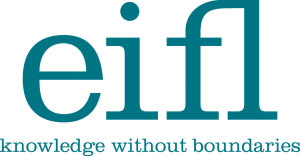 [Electronic Information for Libraries, Link, (CC-BY)]In response to the European Commission’s Public Consultation on the review of EU copyright rules, EIFL submitted a seven point plan that will help libraries to do their work in the digital environment.
[Electronic Information for Libraries, Link, (CC-BY)]In response to the European Commission’s Public Consultation on the review of EU copyright rules, EIFL submitted a seven point plan that will help libraries to do their work in the digital environment.
Of course, as the consultation document contained 80 questions, there are many more points to be made that are covered by other library and civil society groups. The seven point plan captures issues raised by libraries in EIFL partner countries.
Seven point plan
Mandatory exceptions. As the EU is expanded to 28 Member States and new technologies increase the desire for cross-border co-operation, trans-national activities such as large-scale library digitization projects, online learning opportunities and joint research information infrastructures must be facilitated by law. (p. 6)
Inter-library document supply services, a vital adjunct in meeting the specialist information meets of scholars and researchers, must be supported through an exception. Our libraries tell us how inflexible supply options and high prices put licensed services out of reach. (p. 10)
A right to acquire commercially available e-books, and to lend e-books under reasonable terms and conditions. Libraries, authors and publishers have a common goal to encourage reading and writing in diverse languages, an essential part of national culture and identity. Read how libraries in Estonia and Latvia are struggling with the odds. (p. 13)
Let libraries promote Europe’s cultural heritage in the online environment. Libraries need a modern definition of “on the premises” that permits access to digitized works within the library network at the very least, and does not cause whole categories of works to be excluded from Europeana, the European Digital Library, and other socially valuable projects. Read experiences from Latvia, Lithuania, and Poland. (p. 15)
Sign and ratify the WIPO Marrakesh Treaty for persons with print disabilities as a matter of urgency. Blind people in Europe are being denied access to reading materials that libraries want to provide. Read how a library in Lithuania cannot serve its end users because of cross-border copyright problems. (p. 17)
Protect exceptions from overrule by contract. Ensure that exceptions in the Information Society Directive are given binding effect for licensed resources – most electronic resources in libraries – that are otherwise subject to the consent of the rightsholder. It’s been done before in the Database and Computer Program Directives. (p. 7)
Establish a European Ombudsman for access to information to provide support to libraries in negotiating fair licences with publishers, in case of abuse of monopoly position. (p. 12)
Background
EIFL works with library consortia in the following European countries that represent 645 libraries:
- EU Member States: Estonia, Latvia, Lithuania, Poland, Slovenia
- EU candidate countries: Former Yugoslav Republic of Macedonia, Serbia
- Potential candidates: Albania, Bosnia and Herzegovina, Kosovo
Libraries in other EIFL partner consortia throughout the world are affected by EU copyright law and policy because bilateral trade and economic partnership agreements may require the adaptation of local copyright laws in accordance with EU rules and standards.




